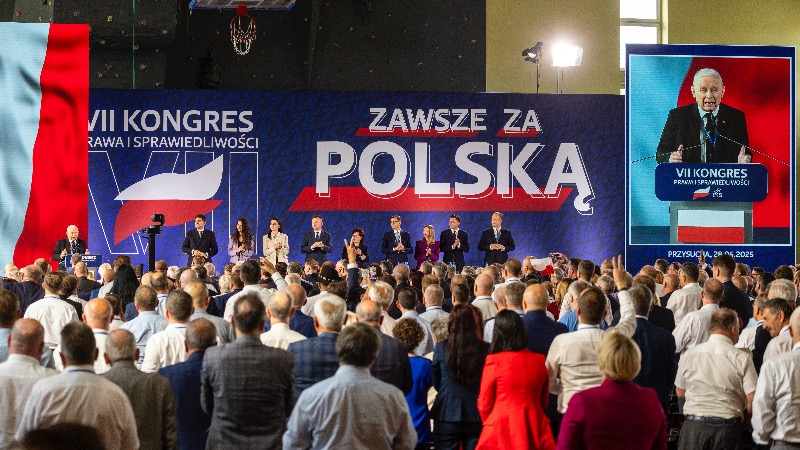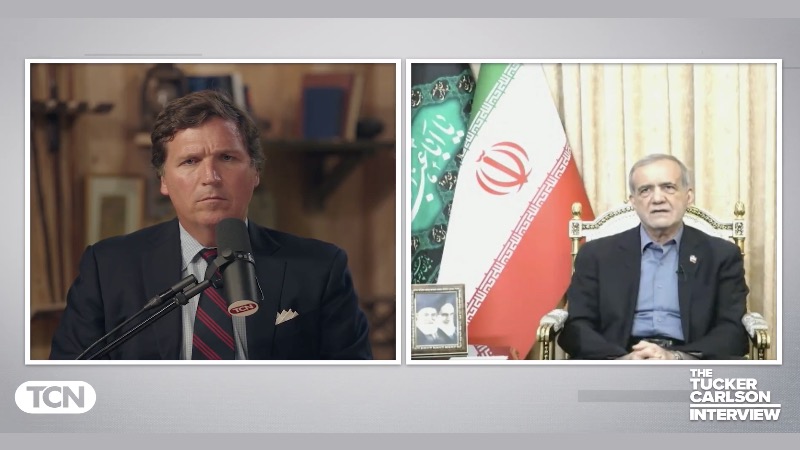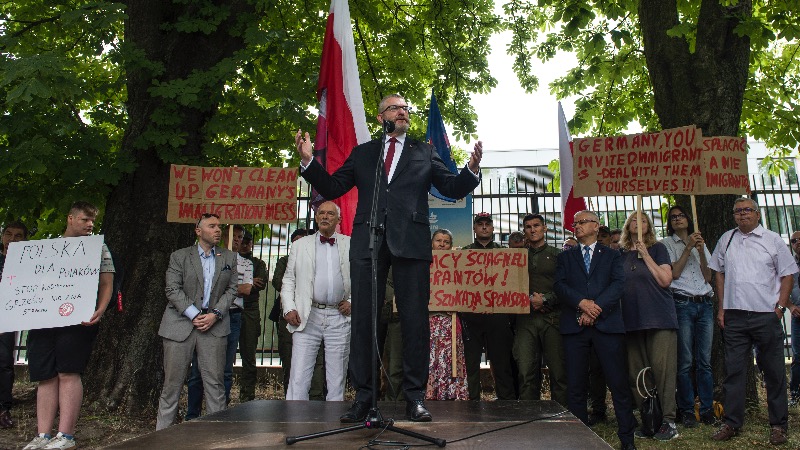 Image Credit: NurPhoto / Contributor / Getty
Image Credit: NurPhoto / Contributor / Getty After days of speculations, Jarosław Kaczyński, the leader of the Polish conservative opposition party PiS, confirmed on Sunday that he did meet Sejm speaker Szymon Hołownia—the leader of Poland 2050, a centrist junior coalition partner in the Tusk government—to discuss the urgent need to “save” the country.
The meeting, about which PM Tusk apparently had not been notified, spooked the other members of the ruling coalition—including Tusk’s catch-all KO, the agrarian KP, and the far-left Lewica—that a political shift that would certainly cause the downfall of the fragile alliance could be underway.
Thursday’s discussion was held “in full discretion,” the conservative party leader said on Sunday, while refusing to share further details on why the secrecy was so important. “I won’t break that discretion now.”
According to Polish media, the two men met during the late hours in the private apartment of Adam Bielan, a PiS member of the European Parliament. Hołownia allegedly arrived first under the cover of the night, followed shortly by Kaczyński.
Although Kaczyński said they did not discuss a potential alliance or coalition between PiS (ECR) and Poland 2050 (Renew) during the secret meeting, his cryptic words still caused panic in Warsaw.
“We talked about—let’s face it—saving Poland,” Kaczyński said, primarily referring to the German-Polish border situation, which both leaders allegedly agreed was a “national emergency.”
The PiS leader did not elaborate much on the contents of the discussion, deliberately remaining vague when asked about whether it achieved its objectives. “This is politics—it’s about going step by step. Once we complete the path, I’ll be satisfied.”
He added, however, that both PiS and Poland 2050 “want to make sure the country moves forward, not backward. Right now, Poland is moving in reverse.”
For his part, Hołownia shut down the rumors in a recent X post, saying that all the “excitement” surrounding the meeting was “neither justified nor helpful.”
“I’m one of the few politicians in Poland who regularly meets with members of both bitterly divided camps. Especially in times like these, dialogue is essential—otherwise, we’ll destroy each other,” the parliament speaker wrote, adding that cross-party talks should be the standard in a democracy, not the exception.
The prime minister tried to maintain a calm composure and attempted to reassure his electorate, only to add more fuel to the fire. “Maintaining the coalition is difficult but possible—as is reshuffling the government and agreeing on a strategy to move forward after the presidential election defeat,” Tusk wrote on X.
He was referring to a planned cabinet reshuffle that’s expected to be announced later this month, which is partly a response to the growing political crisis within the coalition in the wake of the devastating presidential election defeat, weakening the legitimacy of the government.
For weeks, the Tusk government tried to undermine the legitimacy of conservative President-elect Karol Nawrocki through unfounded allegations of widespread electoral fraud. These efforts failed last week, when the Polish Supreme Court dismissed the claims and officially confirmed Nawrocki’s victory. He is now set to be inaugurated in early August.


